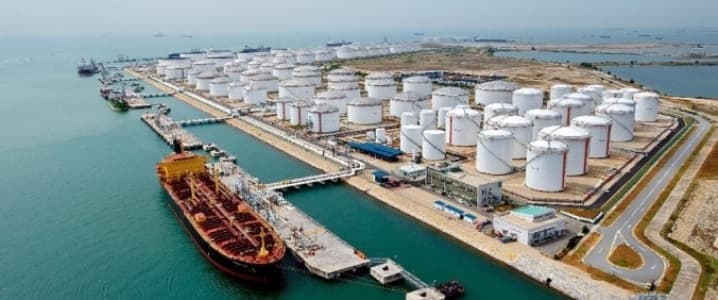Oil and natural gas producers cannot catch a break of late it seems. A few years after the onset of the natural gas glut, Europe is experiencing a similar phenomenon with Russia and Norway using tactics akin to those used by the Saudis with oil. The result is rock bottom prices on natural gas that are benefiting utility companies across the continent. The effective result of these actions is also hitting LNG terminal development economics in the U.S. and minimizing growth of imports from Qatar.
In a remarkable development, gas in the UK has fallen 37 percent in the last year just as Cheniere Energy has started offering exports of U.S. LNG to Europe. While Russia and Norway both deny specifically targeting market share through their business approach, it is clear that national firms in both countries are low cost producers that are proving to be the last men standing as prices continue to tumble. Neither country’s producers need to take specific actions to drive market share – all they have to do is be willing to sell at the market’s defined prices and as those prices fall, natural volume declines from other producers leads to increased share. Related:Oklahoma Oil Industry About To Lose Tax Rebates
While there are still geopolitical reasons to avoid buying Russian gas, increasingly European firms are finding themselves choosing between a more expensive but politically palpable supplier in the form of the U.S., and the cheaper but odious Russian suppliers. This dichotomy is becoming increasingly untenable for many buyers who would otherwise prefer to buy from the U.S. The problem for Russia of course is that its market share is only sustainable so long as it gives up its leverage on natural gas both politically and in the form of price. As soon as Russia seeks to exploit its position as a supplier, buyers may turn to the U.S. again. In that sense then, contestability of the market and the threat of entrants matters as much as actual competition in the market. Related: Oil Edges Higher Ahead Of Weekly Inventory Report
Despite the fall in natural gas prices, Europe as a whole should be cheering. Not only does the cheaper gas provide a much needed economic boost (albeit a small one) in nations like Greece, but it also provides a route to decreased carbon emissions over time. Much of the decrease in carbon emissions in the U.S. in the last decade has come from increased adoption of natural gas rather than use of alternative fuel sources. Yet natural gas users are rarely using the fuel for environmental reasons. Instead they are making a rational economic choice based on prices. Related: Did The Saudis Exaggerate Their U.S. Treasury Holdings?
Europe may follow this same path. As natural gas prices collapse, coal-fired power plants in Germany will have increasing reason to convert to natural gas. Similarly, France’s long heralded nuclear industry will probably face significantly higher economic barrier to the construction of new nuclear plants. None of this is driven by environmental concerns, but rather by companies seeking to maximize profits by minimizing cost through the use of cleaner burning (versus coal) and potentially safer or at least less controversial (versus nuclear power) natural gas. This scenario is what played out in the U.S. a decade ago, and now it appears to be repeating in Europe. Investors should take note.
By Michael McDonald of Oilprice.com
More Top Reads From Oilprice.com:
- Oil Price Spike Is Not As Far Away As Many Think
- Why Jim Chanos is Shorting the Oil Majors
- Oil Markets Balancing Much Faster Than Thought



















Furthermore, you statement that “None of this is driven by environmental concerns, but rather by companies seeking to maximize profits by minimizing cost through the use of cleaner burning (versus coal) and potentially safer or at least less controversial (versus nuclear power) natural gas” is somewhat incongruous with legislative reality in both the U.S. and Germany. After all, price concerns go out the window when the federal government mandates environmental standards that virtually “dictate” coal is not a viable energy option.
Furthermore, the lower cost of natural gas is “deceptive” from an energy standpoint. Why? Because one is required to purchase for more natural gas to produce the same “quality” of energy offered from coal.
Yes, it is true, natural gas prices are “competitive”, now. However, the price history inherent in the oil and gas industry demonstrates the fact that prices will not stay at such levels for an extended period of time. The market will experience either a major supply correction or some “commodity culprit” will find a way or a method to manipulate the market. It has happened before, it will happen again!
As in 2008-2012 so again today France, Germany, Italy, Turkey, Netherlands, and even UK are joining projects that bring Russian gas directly to Eu consumers, by-passing unreliable and sometimes thievish transit states (Ukraine twice in 2006 and 2009, and Belarus once).
Finally, claiming that Norway is a low-cost producer is certainly surprising. Numbers please? Moreover, it is also well-known that Norwegian LNG is quite expensive.